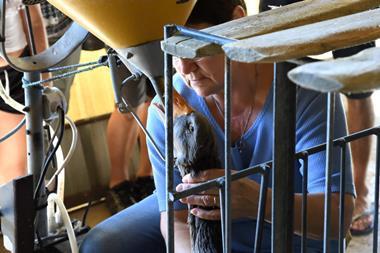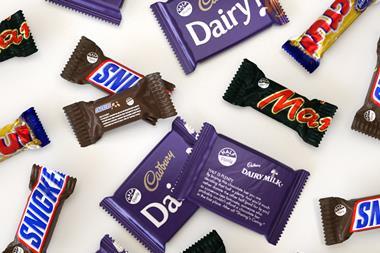
Small British exporters are increasingly turning to markets like Australia, the US and the Middle East as trade with EU neighbours continues to prove a “minefield”, a new report has found.
Around 13% of SME exporters doing business in the EU have stopped trading with the bloc since the UK left in 2021, a survey by the Federation of Small Businesses (FSB) said this week.
The survey showed more than half of small companies (56%) blamed excessive paperwork for their decision to do so.
“Some businesses view non-European markets as having greater growth potential since the UK formally left the European Union,” the FSB said.
Creative Nature – which sells a range of free-from baking mixes – is one of those seeking out new deals in markets such as Australia and the UAE.
“At the moment it takes less time to get a delivery to the US than it does to get it into Europe, which is a big problem”, said CEO Julianne Ponan.
A government spokesman said the Department for Business & Trade had “continued to help UK businesses with new post-Brexit rules and supply chain challenges caused by the pandemic”.
But Ponan said that doing business with countries further afield was more appealing as it meant less burdensome paperwork and associated costs.
Samples get retained or sent back and we’re told we need health certificates, even though it’s a vegan product
“A lot of our samples to European distributors get retained or sent back and we’re told we need health certificates, even though it’s a vegan product – and of course we have to absorb those costs too.
“It sounds ridiculous when you say it’s easier to land deals in Carrefour Israel than Carrefour France, but it’s true”, she said.
Ponan said this was also due to communication with EU-based trade bureaucrats having largely broken down post-Brexit.
She added it had been easier to navigate trade talks in countries where the UK had been investing post-Brexit – such as Australia, New Zealand, India, the UAE and Qatar – than in the EU because many retailers and distributors were “not interested” in the bureaucracy that came with importing British brands.
The FSB has called on the government to make trade simpler and more affordable to small businesses by delivering a “more effective Single Trade Window online portal” for those trading with the EU, as well as providing more detailed guidance.
The Department for Business & Trade spokesman responded by saying it “supports businesses who trade with the EU” and had ”given exporters practical support on the implementation of the UK-EU Trade and Cooperation Agreement (TCA)”.
“We’re also introducing The Electronic Trade Documents Bill, which will significantly reduce administration costs for exporters, as well as launching an ambitious Export Strategy and new Export Support Service.”
The government’s Electronic Trade Documents bill, which is currently passing through parliament, aims to reduce the estimated 28.5 billion paper trade documents printed and flown around the world daily – and the associated admin costs for exporters – by digitalising trade paperwork.



















No comments yet